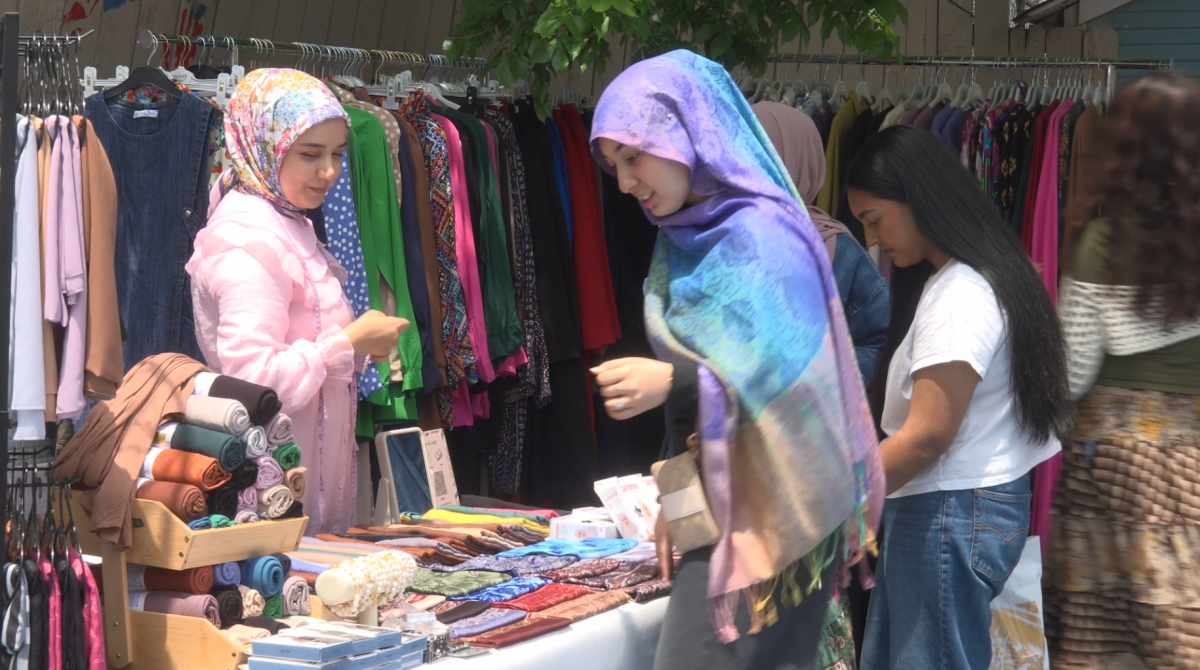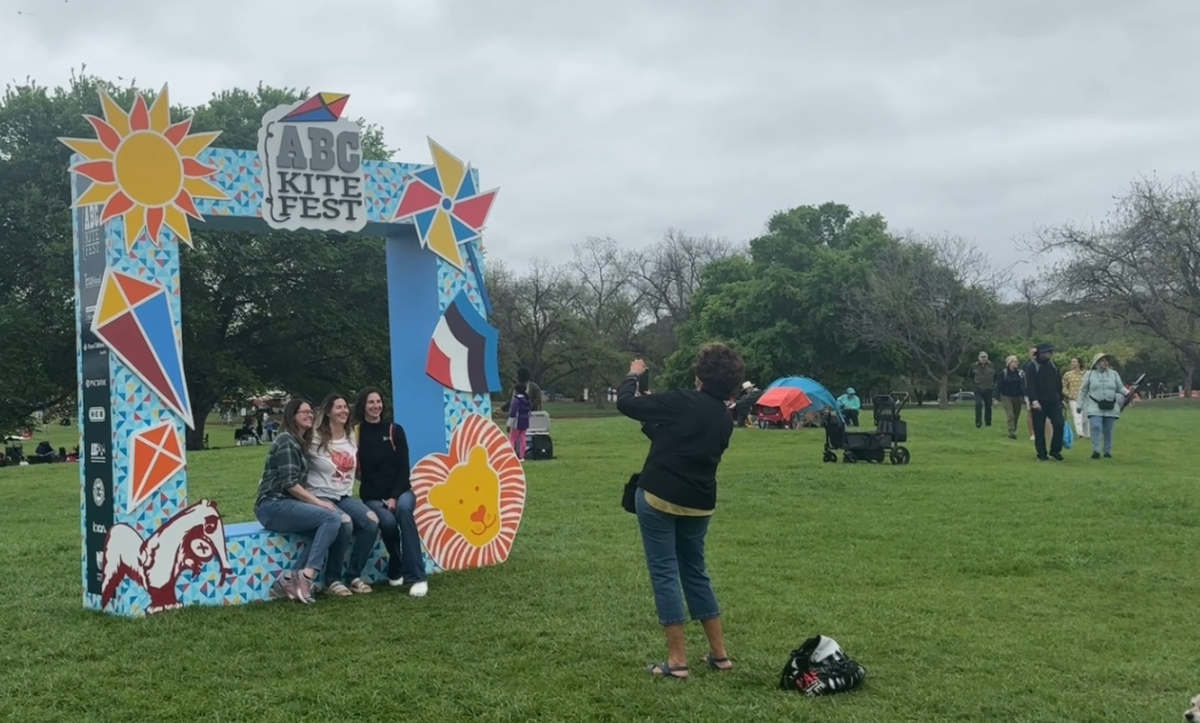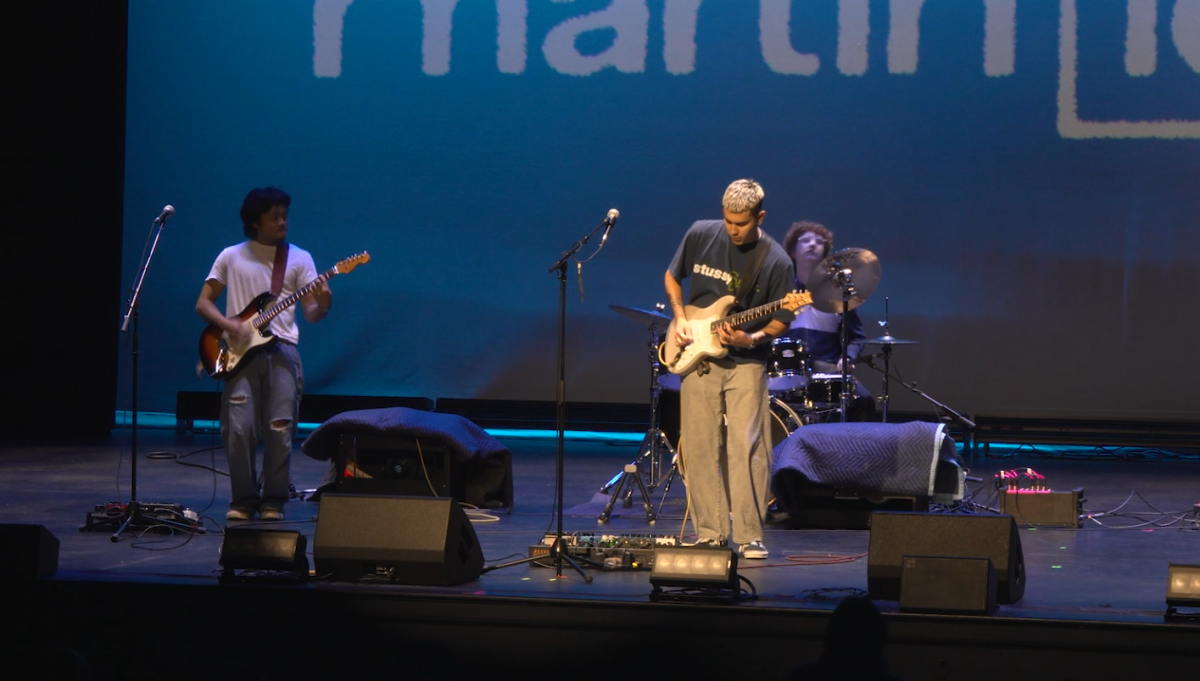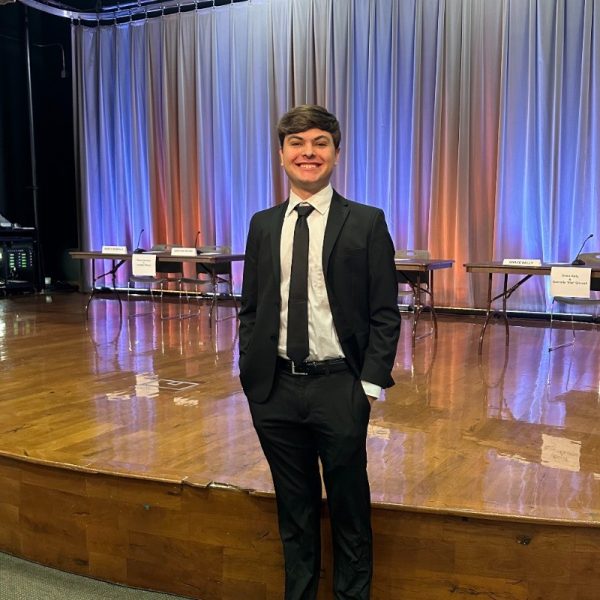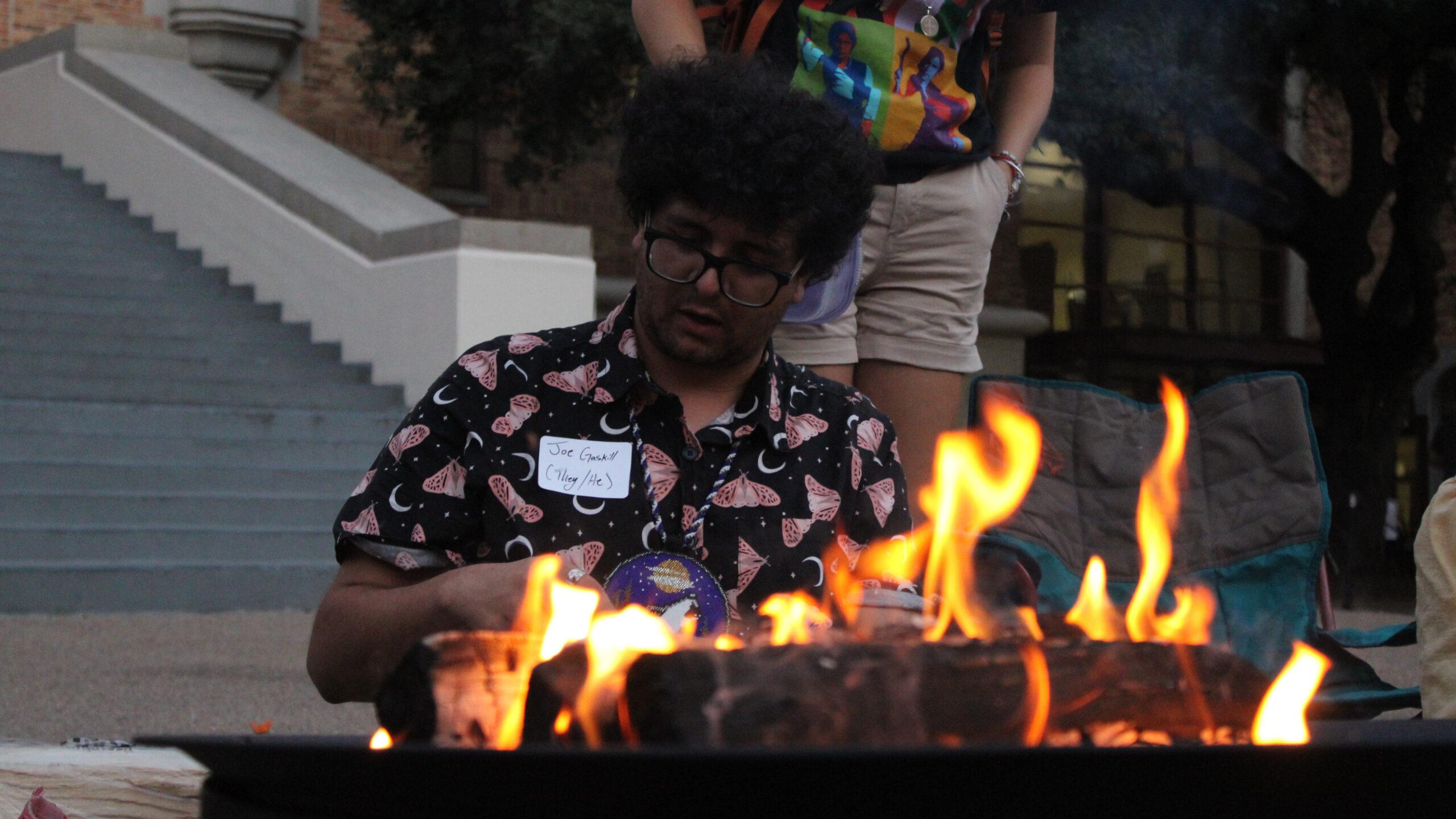
Against the backdrop of the Gregory Gymnasium stairs, flames glistened and flickered in the night as a man holding a drum danced quietly around the falling embers. The group gathered was hosted by UT’s Native American & Indigenous Studies Program, celebrating Indigenous Peoples’ Day with a blessing and meal followed by a sacred fire.
More than 50 students, faculty and community members joined for the dinner and outdoor fire gathering on campus. The celebration commemorated Indigenous Peoples’ Day and analyzed progress made by the university toward goals outlined by the program, said Pauline Strong, director of the Program in Native American and Indigenous Studies.
When the program proposed the university adopt a land acknowledgement, a statement recognizing and appreciating the Indigenous communities that once resided on the land UT now occupies, they also requested the university’s archaeology department repatriate indigenous remains and establish an ethics code for university research on indigenous land.
Strong also emphasized the desire to transition the program into a full center on campus.
“A center is larger, more consequential and appropriate for Native American studies at the University of Texas,” Strong said.
Strong said Ann Stevens, dean of the College of Liberal Arts, has expressed support for the transition, which Strong said is expected in the next one to two years. However, university President Jay Hartzell will not permit Stevens to seek a second term as dean, instead ending her tenure as leader of the college effective August 2025, according to the Austin-American Statesman.
Strong did not mention the program’s ability to transform into a center amidst the impending change in leadership and after the implementation of Senate Bill 17, which restricted diversity, equity and inclusion programs at public universities, including UT. Instead, Strong highlighted the work of the undergraduate collective and graduate student association’s student leaders.
“(They’ve been) very resilient in the face of challenges over the past year to year and a half,” Strong said.
Following Strong’s introduction, Sylvia Jean, a tribal elder from San Antonio and UT alumna, led the room in a pre-meal blessing. Jean thanked more than a dozen influences to the meal, including plants, animals, the four winds and the creator. After each proclamation of thanks, Jean led the room in a group recitation of the adage, “now, our minds are one.” The quote is meant to reiterate the role of humans as “stewards of the earth” and their duty to “honor and respect all life.”
Once the guests began the night’s meal, Joe Gaskill, an anthropology graduate student and the celebration’s firekeeper, invited the room to the Gregory Gym Plaza, where a small campfire burned at dusk.
Gaskill described the fire’s significance, instructing those gathered to lead with their intentional selves around the fire. He described it as “a being we are creating,” meant to foster a space to share teachings from across the diaspora and planet.
“This fire is a space for us to … get to know each other,” Gaskill said. “It’s important to celebrate, acknowledge where we are and be a community when we can.”
The student leaders placed a heavy emphasis on community building around the fire, and Gaskill circled the crowd offering to smudge anyone who desired it. The sacred ceremony serves to purify and cleanse oneself.
Each guest was also asked to introduce themselves with their heritage if they wished and the significance of Indigenous Peoples’ Day to them. English senior Sarah Ramirez was one of many that spoke around the fire.
“It’s a way to reconnect with my family and community, but also to acknowledge the people of this land,” Ramirez said.
Gaskill invited passersby into the circle as they stole glances at the fire. While most chose only to stay for a moment, Gaskill felt it was important to make them feel welcome in the glow of the flames.
“This is a sacred fire,” Gaskill said. “It’s for us.”

